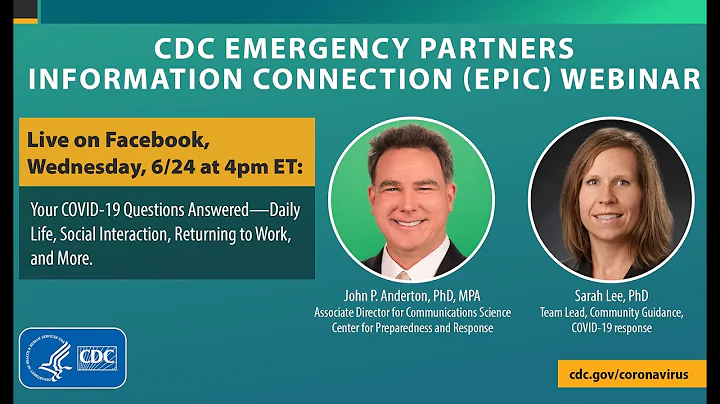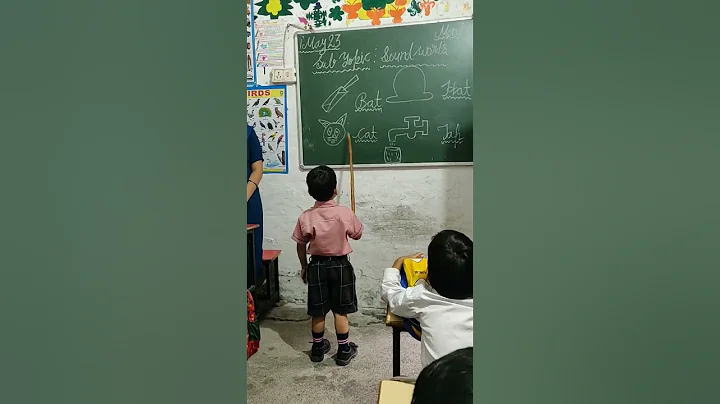
Summer vacation has arrived. In order to enable all students and friends to have a safe, healthy and happy holiday, the Provincial Center for Disease Control and Prevention encourages students to consciously abide by the local COVID-19 epidemic prevention and control requirements during the summer and conscientiously implement various prevention and control measures. , consciously carry out health monitoring with your family. At the same time, we also encourage students, parents and friends to pay attention to the following health tips.

1. Prevent myopia and control weight
During the summer vacation, students are encouraged to develop good eye habits, eat reasonably, and control their weight.
As a parent:
1. Cooperate with schools and government departments to effectively reduce children’s excessive homework burden and off-campus training burden.
2. Provide good home indoor lighting and daylighting environment.
3. Regularly adjust the height of desks and chairs to suit changes in children's height.
4. Do not place TVs and other video products in children’s bedrooms.
5. Ensure children’s sleep time.
6. Encourage the purchase and use of certified optometry-related products and optometry services.
7. Actively pay attention to the signs of abnormal vision in children. If you find that you are squinting to see things, take your children to a regular medical institution for examination.
8. It is recommended that parents help children and teenagers develop good eating habits from an early age, learn nutritional knowledge to diversify food, go to supermarkets and wet markets with their children to identify foods, learn to read food labels, let their children go into the kitchen and learn to cook home-cooked meals, and Practice sharing meals in the family.
As a student:
1. Actively pay attention to signs of abnormal vision, such as unable to see clearly the text on the blackboard, frequent dry eyes, frequent eye rubbing, etc., and promptly inform parents and teachers of changes in vision. You can perform self-tests by closing one eye alternately to detect poor vision in one eye.
2. Keep doing eye exercises and correct bad reading and writing postures. When doing exercises, concentrate, close your eyes, and carefully and correctly massage the acupuncture points until you feel soreness.
3. Maintain correct reading and writing postures, and do "one punch, one foot, one inch"; do not read or use electronic products when walking, eating, lying in bed, in a shaking car, in dim light or under direct sunlight.
4. The continuous use of eyes for reading and writing should not exceed 40 minutes. You should take a 10-minute break every 40 minutes or so to look far away or do eye exercises.
5. Use electronic products scientifically and rationally as needed. After studying using electronic products for 30 to 40 minutes in your spare time, you should take a break and relax for 10 minutes while looking into the distance. The use of electronic products for non-study purposes shall not exceed 15 minutes at a time.
6. Insist on appropriate physical exercise, increase the number of outdoor exercises, enhance physical fitness, and maintain good and abundant energy. It is recommended to achieve 2 hours of outdoor activities every day.
7. Keep the schedule of holidays and school days basically the same, and ensure the sleep time. Elementary school students sleep 10 hours a day, junior high school students 9 hours, and high school students 8 hours.
8. Reduce the intake of fried foods and sugary drinks and avoid high-energy diets.

2. Prevention of drowning
Drowning is the number one cause of accidental injury and death among children in our country. Especially during the summer vacation, care and supervision of children must be strengthened.
1. When children swim, they should be led by adults with rescue capabilities or conducted in an organized manner, and should not go into the water alone.
2. Choose a standard swimming place, preferably a well-managed swimming pool. Swimming in natural waters is not recommended, and outdoor swimming is not suitable when it rains.
3. Before entering the water, you should prepare carefully to avoid problems such as muscle cramps after entering the water.
4. When doing water activities, avoid dangerous behaviors such as fighting and diving.
5. When parents lead their children to participate in water activities, they should be supervised by full-time lifeguards and equipped with qualified flotation equipment for the children. It is also not recommended that parents bring mobile phones to the swimming pool.
6. Parents should pay close attention to young children. Children should not be left alone in toilets, bathrooms, or near open water sources. Water storage containers at home must be emptied or covered in time.
7. If you find your companion drowning, seek adult help immediately. Do not rescue blindly, but rescue wisely.
8. Do not swim in bad weather such as thunderstorms, windy weather, sudden weather changes, etc.
9. During swimming, if you feel uncomfortable, such as nausea, palpitations, dizziness and other symptoms, you should go ashore immediately to rest, or inform your companions to help you get ashore as soon as possible.
3. Prevention of infectious diseases
Summer is the season of high incidence of various infectious diseases, mainly mosquito-borne infectious diseases . At the same time, we must not slack off in protecting against the COVID-19 epidemic.
1. Consciously comply with local COVID-19 epidemic prevention and control requirements
2. Do good personal protection and hand hygiene. Families should purchase thermometers, masks, household disinfection products and other items, monitor body temperature daily, and report any abnormalities in a timely manner.
3. Maintain good living habits. Keep the room tidy, open windows frequently, ventilate frequently, and disinfect regularly. Balanced diet, balanced nutrition, moderate exercise, and adequate rest. Do not spit anywhere. Wrap oral and nasal secretions in paper towels and dispose of them in covered trash cans.
4. To prevent mosquito bites, try to wear light-colored, long-sleeved clothes when going out, spray anti-mosquito liquid , and avoid staying too long in the shade of trees, grass, and other places with many mosquitoes.
5. When traveling, try to choose a hotel with air conditioning or mosquito nets and mosquito screens.
6. Try to avoid going to crowded places, pay attention to wearing masks in closed or crowded places, and take personal protection against the new coronavirus epidemic.

4. Food Safety
According to the World Health Organization , most foodborne diseases occur in the summer, and most of them come from improperly handled or unsafe seafood, picking and eating poisonous wild mushrooms, and Cooked green beans and improperly stored or cross-contaminated meat products.
Recommendation:
1. Pay attention to personal hygiene, wash hands before meals and after using the toilet; keep all ingredients and kitchen utensils clean, disinfect bowls and chopsticks, separate raw and cooked cooking utensils, and do a good job of preventing and killing flies.
2. Separate raw and cooked foods during preparation and storage
3. Cook foods thoroughly when cooking and reheating, especially cooked foods purchased at the market and meals for other meals.
4. Refrigerate cooked food in time (preferably below 5℃). Cooked food should be kept at a temperature above 60℃ before eating.
5. Do not thaw frozen food at room temperature.
6. Use safe water and ingredients.
7. Do not eat the "three noes" Food, do not eat unwashed food, do not drink raw water; do not eat raw, cold or spoiled food.
8. Eat less high-fat and high-sugar foods. Eat less cold drinks.
In addition, according to the requirements of the Ministry of Education's "Compulsory Education Curriculum Plan and Curriculum Standards (2022 Edition)", students in grades 1-2 are required to participate in simple home cooking tasks, such as selecting vegetables, washing vegetables and other rough processing of ingredients, and choosing appropriate tools for sharpening as needed. Fruit peels, use appropriate utensils to prepare drinks. Students in grades 3-4 learn to use simple cooking utensils to cut and prepare ingredients, make cold dishes and platters according to general procedures, and learn to use steaming and boiling methods to process ingredients. Grades 5-6 learn to make 2-3 home-cooked dishes using simple cooking methods such as stir-frying, frying, stewing, etc., and participate in the complete process from selecting vegetables, washing vegetables to cooking and plating.
5. Home safety
1. When you are alone at home and a visitor comes, you should first observe and then ask. If it is a stranger, do not open the door. If a repairman comes to your door, make sure it has been agreed in advance, check the visitor's ID and ask carefully, and only open the door after confirmation. When your home needs repair services, it is best to have family or friends at home with you or inform your neighbors. If someone asks to open the door claiming to be a colleague, friend, or distant relative, do not trust them lightly. If there is a door-to-door salesperson, you can politely decline.Don't be greedy for small gains, otherwise you will regret it later. Don't let your guard down just because the visitor is a woman. If you encounter a stranger entangled at the door and insisting on entering the house, you can call the police, or go to the balcony or window and shout loudly to ask for help from neighbors or pedestrians.
2. Do not lean out of the window or climb the window guardrail to prevent falling.
3. Do not play with knives, scissors, hooks, forks, needles, shovels, lighters, matches, batteries, air fresheners and other daily necessities to prevent sharp injury, burns, or fire.
4. When using electrical appliances, do not touch the power supply with wet hands, do not pull out the plug by dragging, and do not step on the electrical socket. Elementary school students should not use electrical appliances alone.
6. Travel safety
According to the analysis and research of the Road Traffic Safety Research Center of the Ministry of Public Security, children and adolescents will face four types of safety risks when traveling during the summer: the demand for short-distance self-driving trips in the summer increases, and the risk of children traveling by private cars increases; children over 12 years old The risk of riding a bicycle or even illegally driving a motor vehicle increases; the risk of traffic accidents for teenagers and children on national and provincial roads, parking lot entrances and other places is higher; the risk of left-behind children and "little migratory birds" traveling in traffic increases.
Recommendation:
1. When traveling by car, children are not allowed to be left alone in the car without putting their heads or hands out of the car; if there are children riding in the car together, make sure to equip and use child safety seats
2. Children who go out alone for activities should Especially when playing and playing near villages and national and provincial roads, special attention should be paid to safety. Children are in unfamiliar cities and are unfamiliar with the local urban road traffic environment, and there are also greater travel risks.
3. Do not play on the road or around parked vehicles, do not look at mobile phones or listen to music while walking or riding, and do not ride on motor vehicle lanes. Use zebra crossings, overpasses or underpasses to cross the road. Do not run red lights or climb over barriers. Be careful to walk on the sidewalk and keep to the right. Those under 12 years old are not allowed to ride bicycles, and those under 16 years old are not allowed to ride electric bicycles.
4. Do not ride in vehicles that are not qualified for passenger transport (such as agricultural vehicles, tricycles, etc.), and do not ride in vehicles that are speeding, overloaded, drunk, drugged, or fatigued.
5. Drive slowly at entrances, exits and corridors of public places. Pay attention to traffic order, stay away from crowded places, and avoid trampling.
6. Don’t be exposed to the sun outdoors for a long time, and pay attention to heatstroke prevention.
7. Do not stay in places with danger signs; do not play in dangerous areas such as construction sites, tracks, high-voltage lines, etc.; do not play on platforms without guardrails, do not crowd or climb guardrail facilities
8. Do not play in heavy rain, thunder and lightning and other weather environments that are prone to mudslides, Stay and play in geological disaster environments such as landslides and landslides.
In addition, parents and children are reminded to develop a good habit of checking home safety before going out, and confirm the "five checks" together: turn off water, electricity, gas, close doors, and close windows.
Reference materials:
1. "Health Literacy of Chinese Citizens - Basic Knowledge and Skills (2015 Edition)" http://www.nhc.gov.cn/xcs/s3581/201601/e02729e6565a47fea0487a212612705b.shtml
2. "Ministry of Public Security Released by the Traffic Management Bureau Traffic Safety Warning for Children and Youth in Summer" http://www.gov.cn/xinwen/2020-07/23/content_5529367.htm
3. "Compulsory Education Curriculum Plan and Curriculum Standards (2022 Edition)" http://www.gov. cn/zhengce/zhengceku/2022-04/21/content_5686535.htm
Source: Shaanxi Disease Control





















